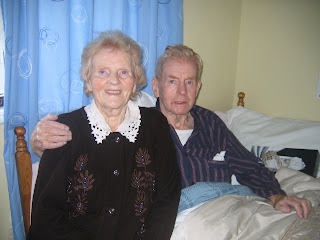A History Lesson
Mom used to say life wasn’t meant to be easy or fair perhaps because life was neither easy nor fair to her but more likely because she was from Britain. The overarching principle I’ve encountered here that fuels the British way of being is that if its more difficult there must be an inherent good in it. Whether driving or cooking a steak or pick-your-activity, if there’s a more difficult way to do it the Brits are all over it.
Take standard transmissions...please. The vast majority of people here drive standards but why drive a standard if you can drive an automatic? “Oh that’s just lazy” someone told me. A pejorative term if ever there was one but my response is still “So?” Are they implying that switching gears is exercise? “But if you take your test on an automatic you’re not allowed to drive standard!” So take the test on a standard. Or just drive an automatic. And how is it that North America hasn’t imploded without that requirement? “It’s just the way we do things here” is the most honest answer and it’s delivered with a sense of pride from the same people that are planning their exit strategy. Most of the Caucasians I’ve spoken to here have either planned to emigrate or dream about it citing African immigration, a burgeoning underclass/crime rate and falling standard of living as their reasons. They can’t let go of their past but they can let go of their country.
It’s part of the British past to crudely, if at all, to mark their streets. In a village everyone knows everyone and everyplace so street signs are superfluous. It’s a friendly, know-you-by-name arrangement that extends to your locale. They’re fond of being “just down from the pub” and visitors are encouraged to inquire locally as to where so-and-so lives. They’re fond of 5 line addresses that include a name of the house rather than a number - everyone wants to live in “Rose Cottage” - and a neighbourhood rather than a postal code (Ireland still doesn’t use postal codes). But the folksiness of the village doesn’t extend to the city, much as they’d like it to.A teacher I met chided me once when I complained about the lack of street signs that North Americans don’t have the history to name areas by name. To their benefit. They don’t have “The Land of Our Fathers” chained to their collective ass like a grand piano thus allowing them to move into the future with its higher standard of living.
Here’s an interesting one; barbecue briquets. Remember them? You’d soak them in lighter fluid or plant cubes beneath them, set them aflame and an hour later you’d have sufficient heat to cook your evening meal. The gas Hibachi arrived in North America twenty or thirty years ago; mini canisters for the beach, big ones for the back porch. When I asked a girl at work why she still uses briquets with their mess, time, effort and carcinogens she responded “It’s better”. Must be, it’s more difficult.
The back porch here isn’t outside your back door. It’s at the far end of the yard obliging the would-be outside diners to trudge through their swamps (ok, the rain isn’t their fault) betwixt kitchen and table. Maybe they don’t want the smoke from the briquets near the house. Maybe they like to sit at the far end of the yard and admire Rose Cottage or feel the distance from house to deck extends the living area but what I know for sure is it makes life more difficult.
Like the tiny fridges. Kitchens here aren’t smaller than what I’ve seen in Canada or anywhere else but I’ve seen bigger fridges in hotel rooms. They necessitate more frequent shopping, prevent economical bulk shopping and force me to get on my hands and knees to examine its contents. Why? Because they see big fridges in the same light as big American vehicles; grotesque symbols of wealth that are unnecessary and expensive to operate. In part I agree. We’ve learned to get by with less fridge space here and I want to reduce my carbon footprint but less frequent trips to the store would have the same impact and be easier on my back.
There’s more, much more, like dryers that don’t vent to the outside (you have to empty the water cartridge) and gates around parks that make access more difficult but you get the idea. The question is why. Why do they make life more difficult for themselves? Most see the question as an affront as it questions their values and intelligence and their body language and tone tell me not to inquire further. There's some truth to the belief that if it's more difficult it's better. The stairs are healthier than the escalator and smaller cars/fridges are easier on the environment and the pocketbook but I’m guessing the real reason is lodged deeper. The Brits have been through hard times such as we haven’t seen in North America which, by and large, is peopled by those who sought a better life. The world wars weren’t felt as deeply across the pond but they came through them here with sheer grit and a stiff upper lip. They learned to get through it by doing more with less, by learning to live with the difficulties that life threw at them and adopting them with pride. Some lessons are just too ingrained to unlearn.
Labels: more difficult than necessary

















